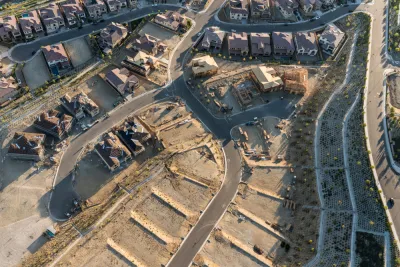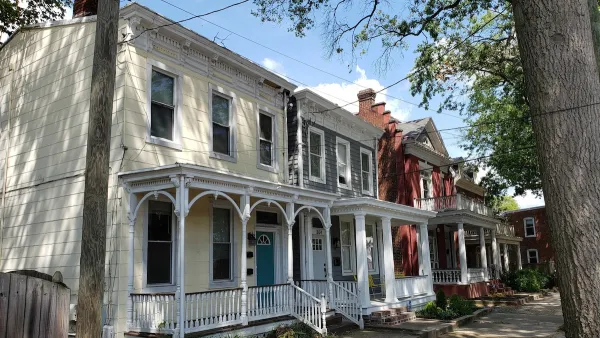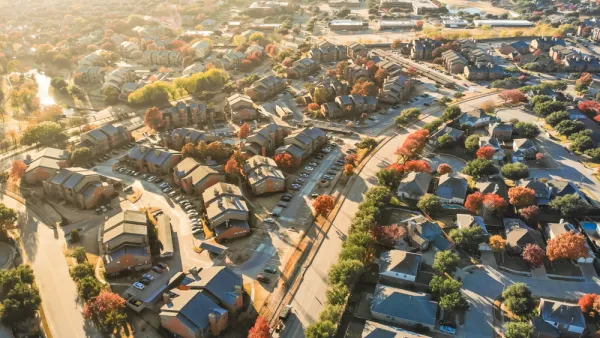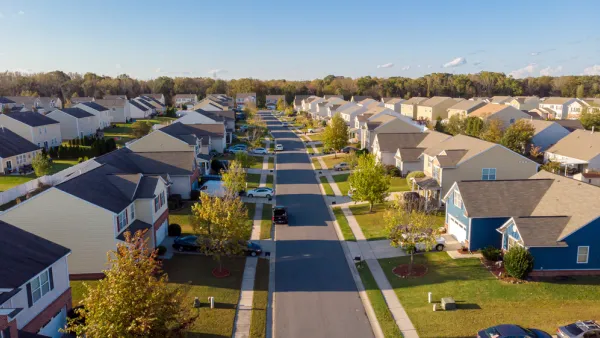Increasingly unaffordable housing in most U.S. metropolitan areas is pushing low-income workers farther away, decreasing their access to economic opportunities.

An in-depth examination of housing inequity in the 100 largest metropolitan areas in the United States by Thai Le, Edward Muña, Sarah Treuhaft, and Rasheedah Phillips delves into the “shrinking geography of opportunity” that is putting affordable housing and economic opportunities out of reach for many Americans.
“Not only is there an overall shortage of affordable rental homes, but they are rarely located in ‘high-opportunity’ neighborhoods that have high-quality schools, safe streets, clean air, parks, reliable transit, and proximity to jobs, retail, and services,” the authors write.
In the past, racially discriminatory policies, including redlining, urban renewal, and government-backed home loans (almost exclusively for white homebuyers), created geographic concentrations of opportunity and disadvantage throughout regions. Today, policies that are not explicitly discriminatory yet have racially inequitable impacts (e.g., exclusionary zoning), maintain these patterns of spatial inequality — effectively locking many people of color out of educational and economic opportunity.
The source link includes the full analysis, which concludes that “there is a growing gap in access to affordable housing and high-quality neighborhoods for working-class renters and renters of color.” The authors say that “Reversing the trend of shrinking neighborhood opportunity for low-income renters and ensuring that all residents have access to safe and affordable housing in opportunity-rich neighborhoods is crucial to reversing the racial and economic inequities that prevent equitable, prosperous regions.”
FULL STORY: The Shrinking Geography of Opportunity in Metro America

Analysis: Cybertruck Fatality Rate Far Exceeds That of Ford Pinto
The Tesla Cybertruck was recalled seven times last year.

National Parks Layoffs Will Cause Communities to Lose Billions
Thousands of essential park workers were laid off this week, just before the busy spring break season.

Retro-silient?: America’s First “Eco-burb,” The Woodlands Turns 50
A master-planned community north of Houston offers lessons on green infrastructure and resilient design, but falls short of its founder’s lofty affordability and walkability goals.

Test News Post 1
This is a summary

Analysis: Cybertruck Fatality Rate Far Exceeds That of Ford Pinto
The Tesla Cybertruck was recalled seven times last year.

Test News Headline 46
Test for the image on the front page.
Urban Design for Planners 1: Software Tools
This six-course series explores essential urban design concepts using open source software and equips planners with the tools they need to participate fully in the urban design process.
Planning for Universal Design
Learn the tools for implementing Universal Design in planning regulations.
EMC Planning Group, Inc.
Planetizen
Planetizen
Mpact (formerly Rail~Volution)
Great Falls Development Authority, Inc.
HUDs Office of Policy Development and Research
NYU Wagner Graduate School of Public Service




























